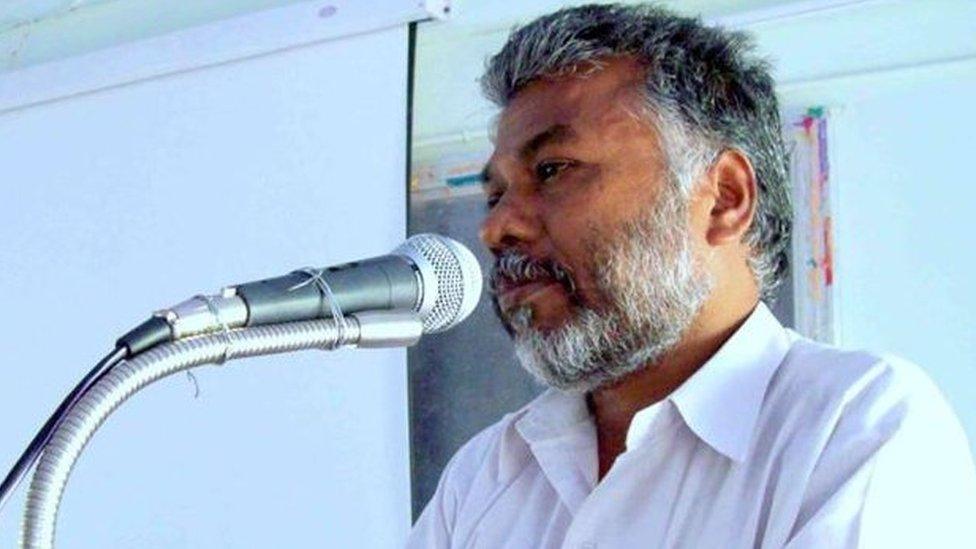Perumal Murugan: Indian court drops charges against author
- Published

Perumal Murugan is seen as one of the finest writers in the Tamil language
An Indian court has dismissed an attempt to bring criminal charges against a Tamil novelist whose writings on caste angered Hindu groups.
The high court in Chennai (Madras) threw out a slew of petitions demanding that Perumal Murugan be prosecuted.
"Let the author be resurrected to what he is best at: Write," said the judges.
Murugan gave up writing last year after protests over his novel Madhorubagan. The verdict is being seen by supporters as a victory for freedom of expression.
There was no immediate comment from Murugan.
The court also said that a "settlement" between the novelist and a "peace council" in Tamil Nadu state, where the author agreed to apologise for his novel and withdraw all unsold copies of the book, was not legally binding on him.
Madhorubagan (One Part Woman) is set about a century ago near the author's home town of Tiruchengode in southern India. It is about a childless woman who participates in a sex ritual during a temple festival in order to conceive, a scenario Murugan says was based on historical fact.
Local groups led protests against the book, saying the "fictitious" extramarital sex ritual at the centre of the plot insulted the town, its temple and its women.
Copies of the novel were burnt, residents shut down shops and a petition sought the arrest of the author.
This prompted the author to write a dramatic Facebook post which read: "Perumal Murugan, the writer is dead. As he is no God, he is not going to resurrect himself. He has no faith in rebirth. As an ordinary teacher, he will live as P Murugan. Leave him alone."
He also instructed his publishers not to print and sell his work and promised to compensate them for the unsold copies. He implored his readers to burn his books, and said he would stop attending literary festivals.
Murugan is described by many critics as one of the finest writers in the Tamil language.
- Published15 January 2015